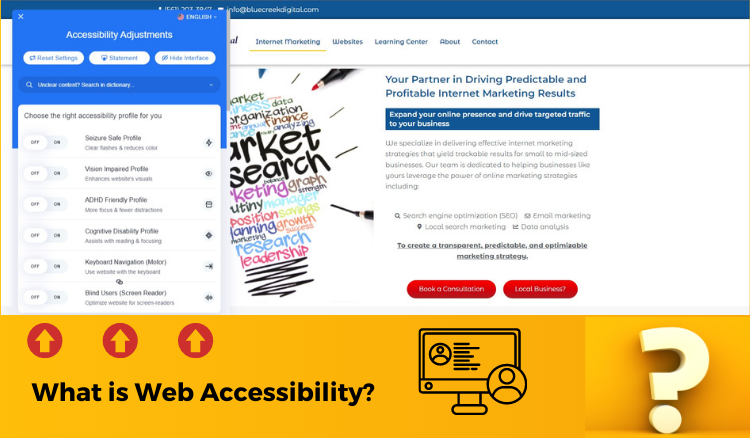Introduction to Web Accessibility
The power of the internet lies in its ability to connect people from all walks of life, regardless of their abilities or disabilities. However, not all websites and web tools are designed with accessibility in mind, creating barriers for individuals with disabilities and hindering their access to vital information and services. In this article, we will explore the significance of accessibility, its impact on individuals, businesses, and society, and why it should be a fundamental consideration for all developers and organizations.
Understanding Web Accessibility
Accessibility refers to the design and development of websites, tools, and technologies in a manner that enables people with disabilities to use them effectively. This inclusivity extends to various disabilities, including auditory, cognitive, neurological, physical, speech, and visual impairments. The ultimate goal is to ensure that everyone, regardless of their abilities, can perceive, understand, navigate, interact with, and contribute to the web.
It also brings benefits to individuals without disabilities. People using diverse devices with small screens or different input modes, older individuals with changing abilities, or those facing temporary or situational limitations can all benefit from accessible design. Moreover, accessibility positively impacts people in rural areas, developing countries, and fosters social inclusion for various communities.
The Impact of Web Accessibility
Empowering Individuals
The internet plays an increasingly vital role in various aspects of modern life, including education, employment, government services, commerce, healthcare, and recreation. For individuals with disabilities, web accessibility is not just a convenience; it’s a fundamental right. The United Nations Convention on the Rights of Persons with Disabilities (UN CRPD) recognizes access to information and communication technologies, including the web, as a basic human right.
By breaking down barriers to communication and interaction, web accessibility offers unprecedented access to information for many individuals with disabilities. It allows them to participate fully in society, access educational resources, apply for jobs, engage in e-commerce, and connect with friends and family.
Enabling Businesses and Innovation
From a business perspective, web accessibility is not just a legal requirement; it is also a strategic advantage. Accessible design enhances the overall user experience, leading to greater customer satisfaction and loyalty. The benefits extend to various situations, devices, and older users, creating a more inclusive user base.
In addition, accessible websites attract a wider audience, including those with disabilities and aging populations. This broader market reach can drive innovation and open up new business opportunities. Moreover, businesses that prioritize accessibility demonstrate a commitment to social responsibility, enhancing their brand reputation and attracting socially conscious customers.
Fostering an Inclusive Society
Web accessibility has the power to promote social inclusion, not only for individuals with disabilities but also for various other communities. As we strive to build a more inclusive society, accessible websites and technologies ensure that marginalized populations, including older individuals and those in developing countries, can access essential services and resources.
By removing barriers and creating a more accessible online environment, we foster a sense of community and belonging for all users. This sense of inclusion strengthens social bonds and enables diverse perspectives to contribute to the advancement of our digital world.
The Legal and Ethical Imperative
Beyond the evident benefits, web accessibility is also a legal and ethical imperative. Many countries have laws and regulations in place that mandate web accessibility for public and private sector websites. Compliance with these regulations not only prevents legal issues but also demonstrates a commitment to equal rights and inclusivity.
It is crucial for developers and organizations to proactively adopt web accessibility standards, not only to avoid penalties but also to ensure that their products and services are available to all potential users. By embracing accessibility, businesses can lead the way in creating a more inclusive digital landscape.
Conclusion
Web accessibility is more than just a technical consideration; it is a philosophy that embodies the core principles of equality, inclusivity, and social responsibility. Ensuring that websites, tools, and technologies are designed to accommodate diverse abilities is not only the right thing to do; it also makes sound business sense.
By prioritizing accessibility, we empower individuals with disabilities, enhance user experiences for all users, drive innovation, and foster a more inclusive and interconnected society. As technology continues to shape our lives, let us embrace web accessibility as an opportunity to make the digital world a place where everyone can thrive and participate fully.
So, as we move forward, let web accessibility be a guiding principle in all our endeavors, transforming the internet into a truly universal platform, where every individual can harness its power and potential.


